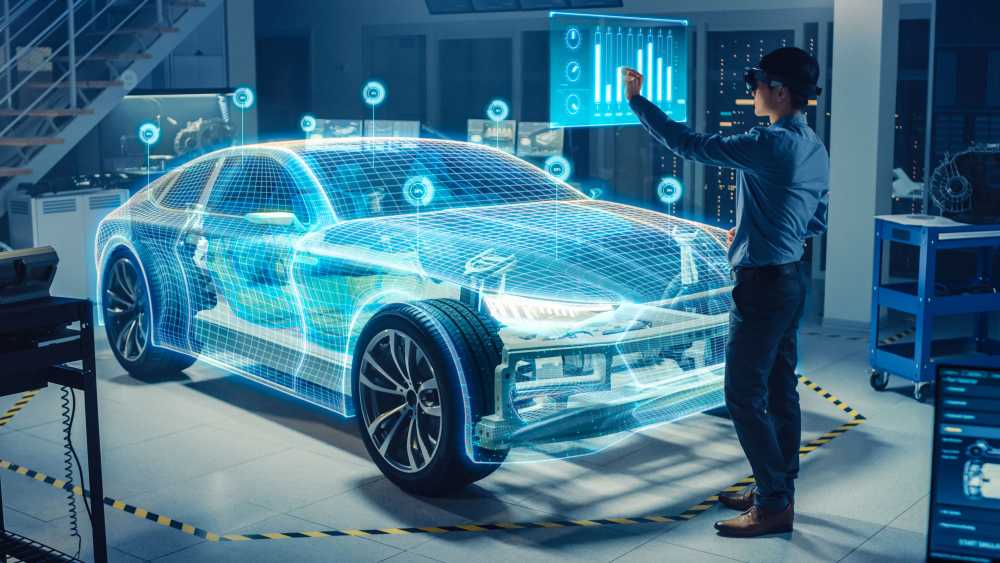Welcome to the electrifying world of electric vehicles! Over the past decade, these sleek and futuristic cars have been making waves in the automotive industry like never before. From eco-conscious drivers seeking a greener alternative to gasoline-powered vehicles, to tech enthusiasts looking for cutting-edge innovations, electric vehicles have captured our imaginations and are here to stay. In this blog post, we will dive deep into the rise and impact of electric vehicles, uncovering their incredible journey from niche curiosity to mainstream sensation. Buckle up as we explore how these silent revolutionaries are reshaping the future of transportation and paving the way towards a more sustainable tomorrow.
What is an Electric Vehicle?
Electric vehicles are vehicles that use electricity to power the engine. They have many benefits over traditional gasoline-powered cars, including emissions reductions and reduced fuel costs. There are a number of different types of electric vehicles on the market, from small city cars to large SUVs.
There are a number of reasons why people are choosing to buy electric cars. One reason is that electric cars are more environmentally friendly than traditional gasoline-powered cars. The emissions from an electric car depend only on how much electricity is used to power the vehicle, rather than the type of fuel that the vehicle uses.
Electric vehicles also have some cost advantages over traditional gasoline-powered cars. Electric car batteries can be charged using solar panels or wind turbines, which means that they don’t rely on expensive gas stations. Additionally, electric car batteries can be recharged very quickly, which means that they can be used for short trips rather than long ones.
There are a number of reasons why electric vehicles are becoming more popular in the automotive industry. They have many benefits over traditional gasoline-powered cars, and they’re becoming more affordable as battery technology improves.
Types of Electric Vehicles
Electric vehicles are steadily becoming more popular, with many manufacturers releasing new models each year. Here’s a look at the different types of electric vehicles on the market today.
The first type of electric vehicle is the plug-in hybrid. A plug-in hybrid uses a gas and electric engine, with the battery providing power when needed. The Toyota Prius is a well-known example of a plug-in hybrid.
Another type of electric vehicle is the all-electric car. An all-electric car uses no gasoline or diesel fuel, and relies only on electricity to run. The Tesla Model S is an all-electric car that has received much praise for its performance and design.
The third type of electric vehicle is the solar powered vehicle. Solar powered vehicles use panels to convert sunlight into energy that can be used to run the car. Many solar powered cars are designed to be mobile homes that can be moved around to get access to sun rays wherever they are needed.
There are also many other types of electric vehicles on the market, including cars that use hydrogen as their fuel source, trucks that run on natural gas, and even planes that use batteries to store energy from wind turbines while in flight. While there are many different types of electric vehicles available today, it seems likely that the number will continue to grow as manufacturers strive to find ways to make driving an electric vehicle even more affordable than traditional gasoline and diesel vehicles
Pros and Cons of Electric Vehicles
Electric vehicles have many advantages over gas-powered cars. They are much more environmentally friendly, because they produce no emissions. They also require far less maintenance than gas-powered cars, since they don’t require oil changes or tune-ups.
However, electric vehicles are not without their own set of drawbacks. They can be more expensive to buy and operate than gas-powered cars, and the batteries can lose power over time if not properly maintained. Additionally, some areas may not have enough charging infrastructure to support large numbers of electric vehicles.
Why are Electric Vehicles Rising in Popularity?
The popularity of electric vehicles is on the rise, and there are a number of reasons for this. First, there are a number of environmental benefits to using electric vehicles. Electric vehicles produce zero emissions, which can help reduce pollution and improve air quality. Additionally, electric vehicles don’t require maintenance or any fuel injection – they run on batteries which mean there is no risk of oil spills or emissions.
Another reason why electric vehicles are becoming increasingly popular is because they are affordable. In many cases, electric vehicle ownership costs less than traditional car ownership options. For example, the average cost of owning an electric vehicle in the US is around $30,000 – compared to around $35,000 for a regular car.
Electric vehicles have a number of advantages when it comes to performance and efficiency. Electric cars are faster and more efficient than gas-powered cars – they typically travel at around 95% the speed as petrol cars and can range up to 300 miles on one charge. Additionally, they are much quieter than gas-powered cars and often have lower emissions levels too.
The Impact of Electric Vehicles on the Automotive Industry
The automotive industry employs millions of people and is an integral part of the economy. According to the National Automobile Dealers Association, the U.S. auto market generated $1.5 trillion in economic activity in 2017.
Electric vehicles have the potential to revolutionize the automotive industry and have a significant impact on employment. The International Energy Agency (IEA) has estimated that there will be 1 million electric cars on the road by 2022, up from 750,000 today. This growth is due to decreasing costs and advancements in technology, as well as government policies supporting electric vehicles.
In terms of jobs, electric vehicle manufacturing will create many new positions in areas such as engineering, production, marketing, and finance. In addition, sales and service jobs will also be created as people try to learn about and adopt these new technologies. The IEA has estimated that there will be nearly 800,000 jobs in charging infrastructure by 2030.
The rise of electric vehicles is also having a positive impact on the environment. Electric vehicles require far less energy to operate than traditional cars, which means they produce less pollution and save energy resources. In fact, according to Bloomberg New Energy Finance (BNEF), electric vehicles could account for two-thirds of all new car sales by 2040 if current trends continue. This would result in savings of more than $2 trillion over the period 2016-2040 relative to using gasoline or diesel cars alone.

